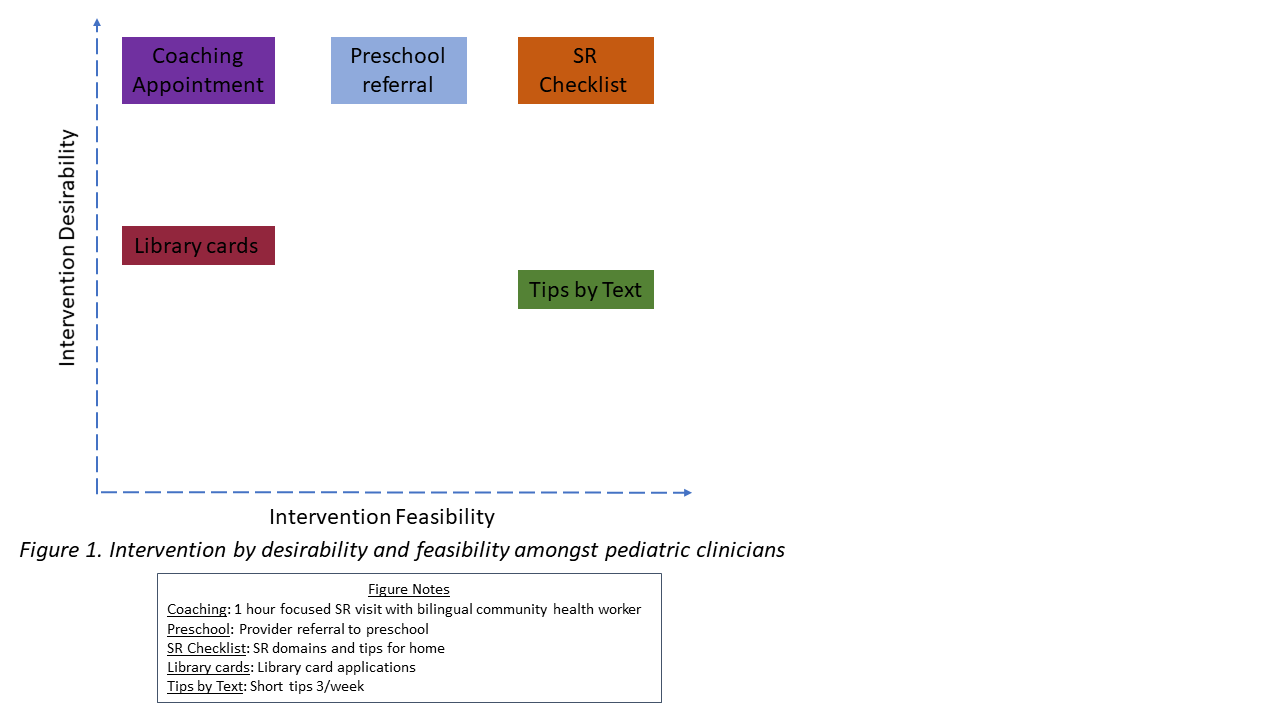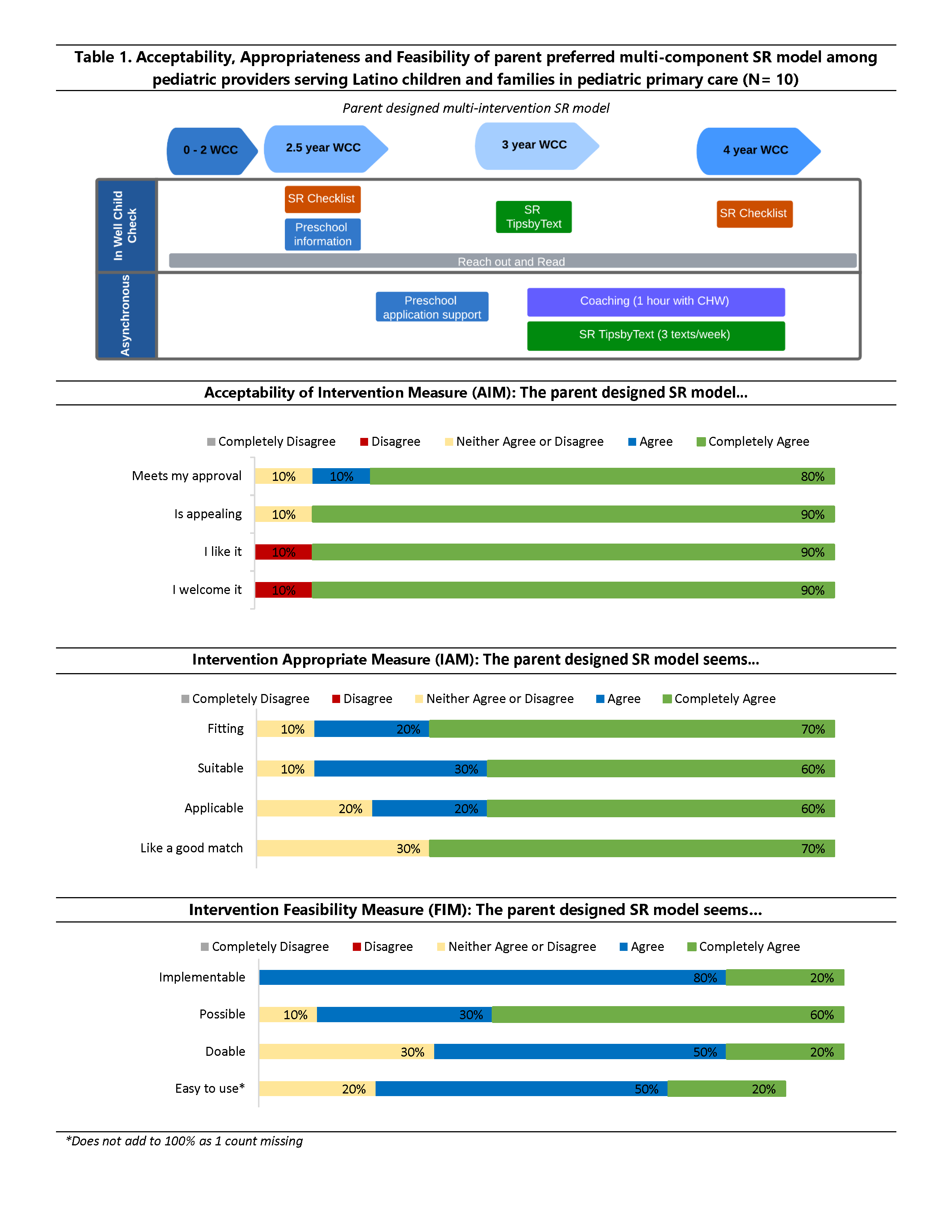General Pediatrics
Session: General Pediatrics 2
249 - Pediatric Clinician Acceptability and Feasibility of School Readiness Interventions Preferred by Latino Families
Friday, May 3, 2024
5:15 PM - 7:15 PM ET
Poster Number: 249
Publication Number: 249.46
Publication Number: 249.46

Jaime W. Peterson, MD, MPH (she/her/hers)
Assistant Professor
Oregon Health and Science University
Portland, Oregon, United States
Presenting Author(s)
Background: Children entering school ready to learn are more likely to succeed academically. US Latino children from low-income households experience economic and cultural barriers to school readiness (SR), often entering school behind affluent peers. Latino families previously identified preferences for specific clinic-based SR interventions; however, clinical implementation requires clinician engagement.
Objective: To examine the feasibility and acceptability of parent-preferred primary care SR interventions among pediatric clinicians serving Latino families.
Design/Methods: Conducted semi-structured interviews and surveys of clinicians at 3 Oregon pediatric clinics (rural, urban, suburban). Open ended questions assessed: 1) reflection on parent SR journeys and general intervention preferences 2) acceptability and feasibility of select SR interventions 3) implementation barriers and strategies and 4) design thinking to develop a multi-intervention model. Clinicians ranked individual interventions and scored a multi-component intervention model designed by parents with validated measures: Acceptability, Appropriateness, and Feasibility of Intervention (AIM; IAM; FIM). Interviews were completed by a pediatrician, audio recorded and transcribed. Iterative team-based coding, inductive and discourse analysis of interviews were conducted.
Results: Participant clinicians (N=10) speak English and Spanish (80%); 50% had 10+ years of practice experience; two identified as Latina; all sites have Reach Out and Read. Four domains emerged: 1) Reflections: parent journeys resonated with clinical experiences, but clinicians were surprised that Latino families were embarrassed to ask for SR support. 2) Current SR practices: varied by provider, with limited knowledge of early math as well as preschool access, location, and enrollment process impacting confidence to support families. 3) Interventions: Clinicians found all interventions acceptable; preschool referrals and coaching with a bilingual health worker were desirable due to higher impact, yet time and cost intensive; SR Checklist and TipsbyText were most feasible given low cost. 4) Implementation strategies: highlight parent voice; staff engagement and training; attention to family literacy and bilingual resources. Design thinking: Provider SR models included three components: SR Checklist, preschool referrals and coaching across 2-5 years; half integrated TipsbyText and library cards.
Conclusion(s): Pediatric clinicians found parent-preferred SR interventions to be acceptable with varying feasibility; coaching and preschool navigation were favored but have more barriers.


